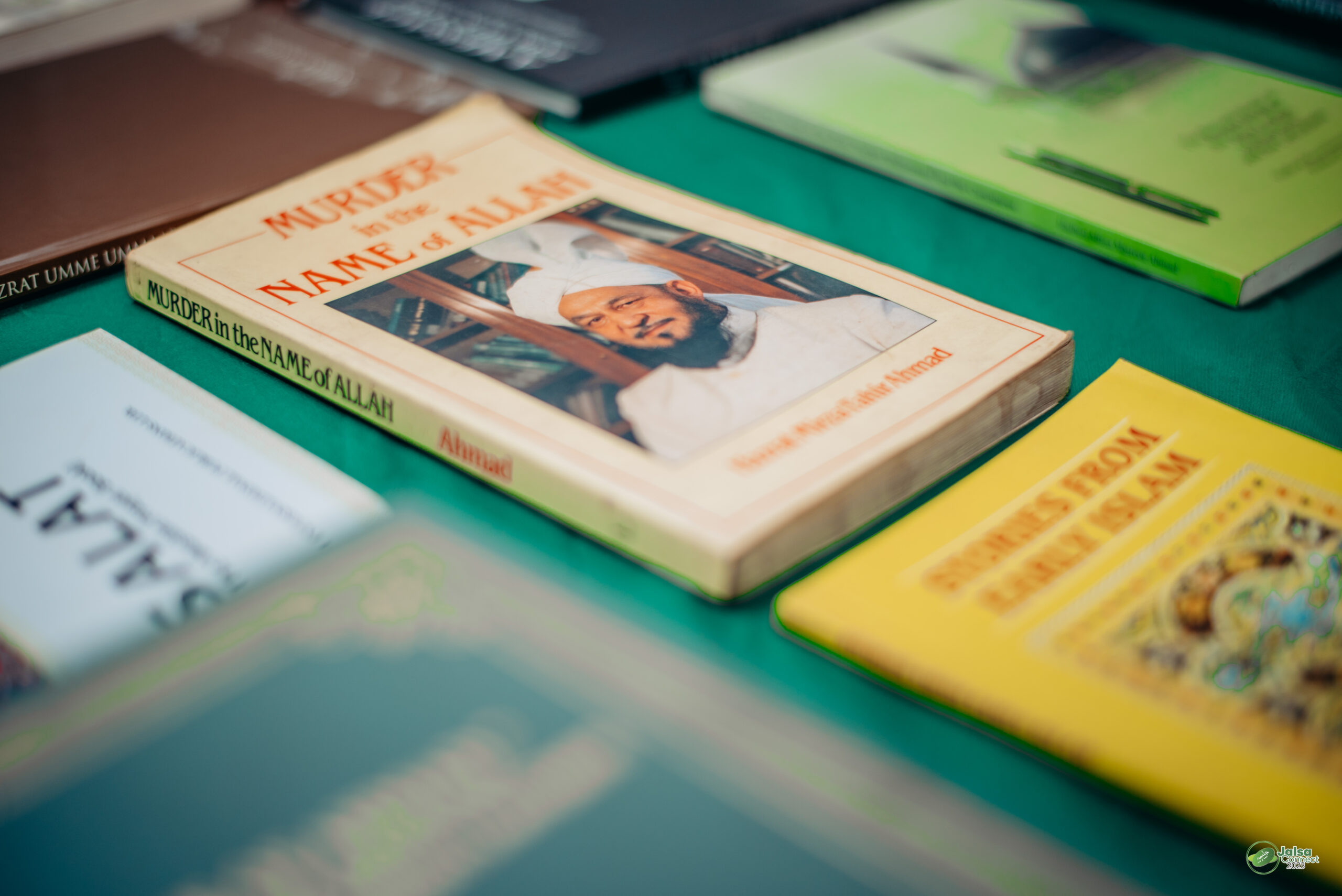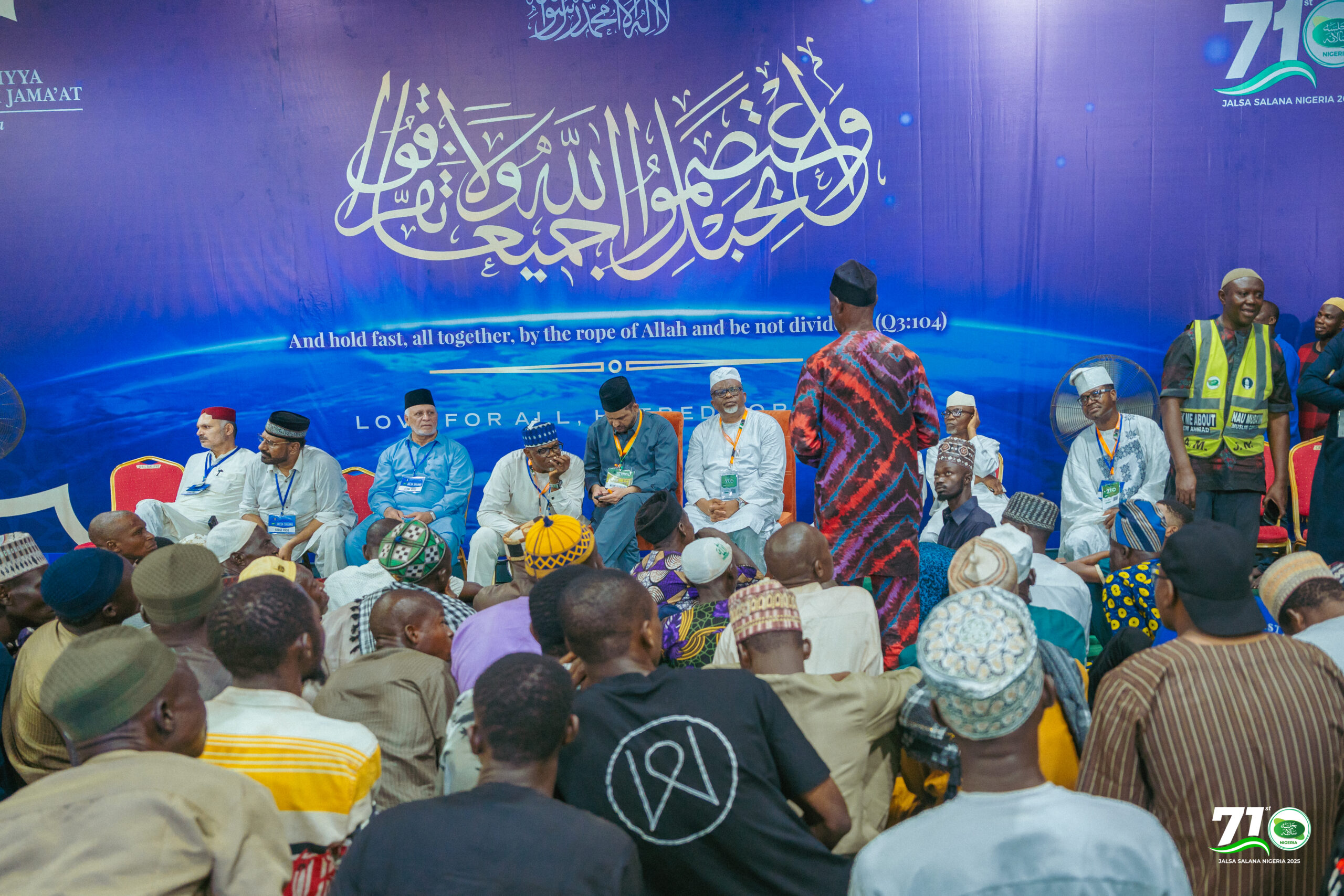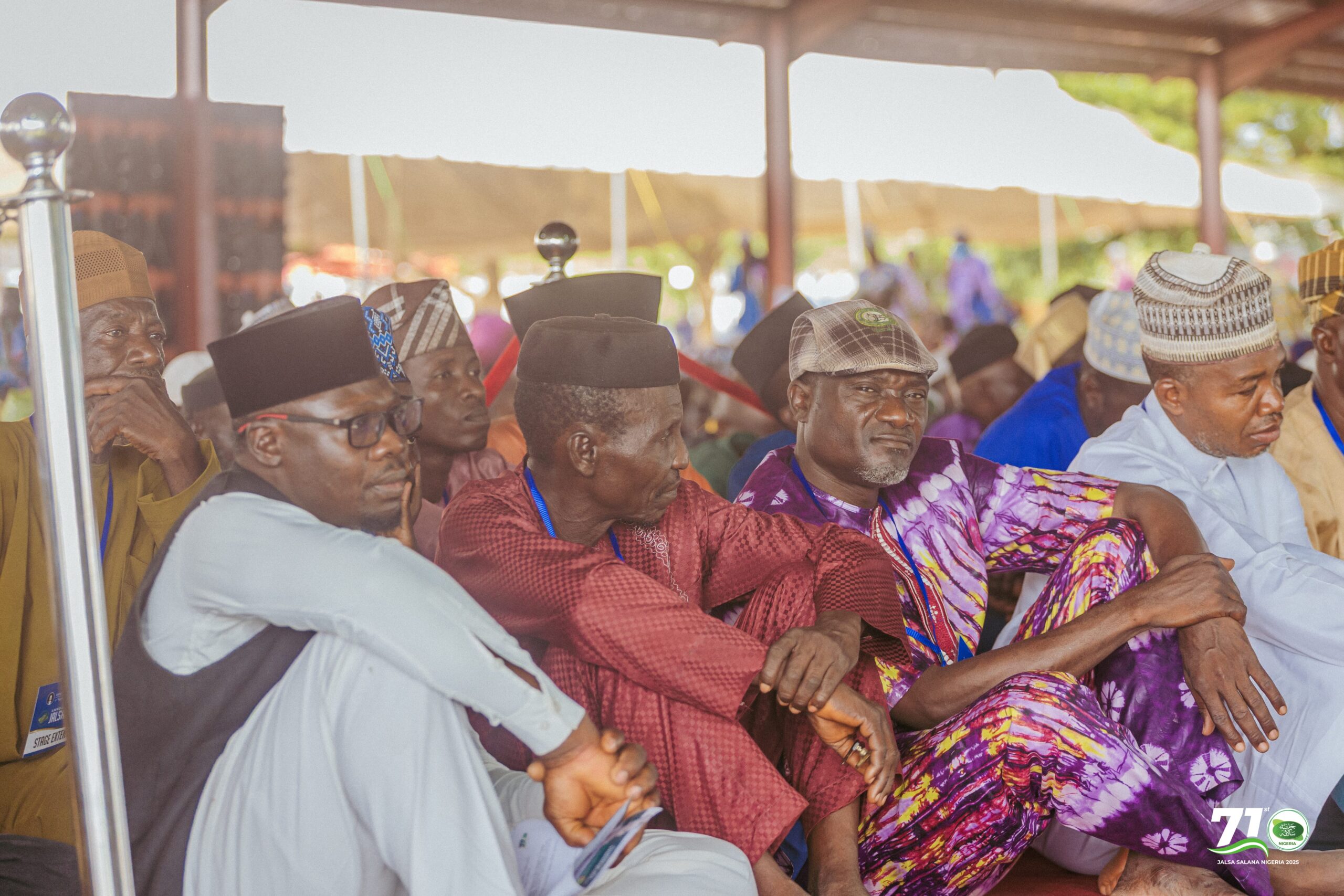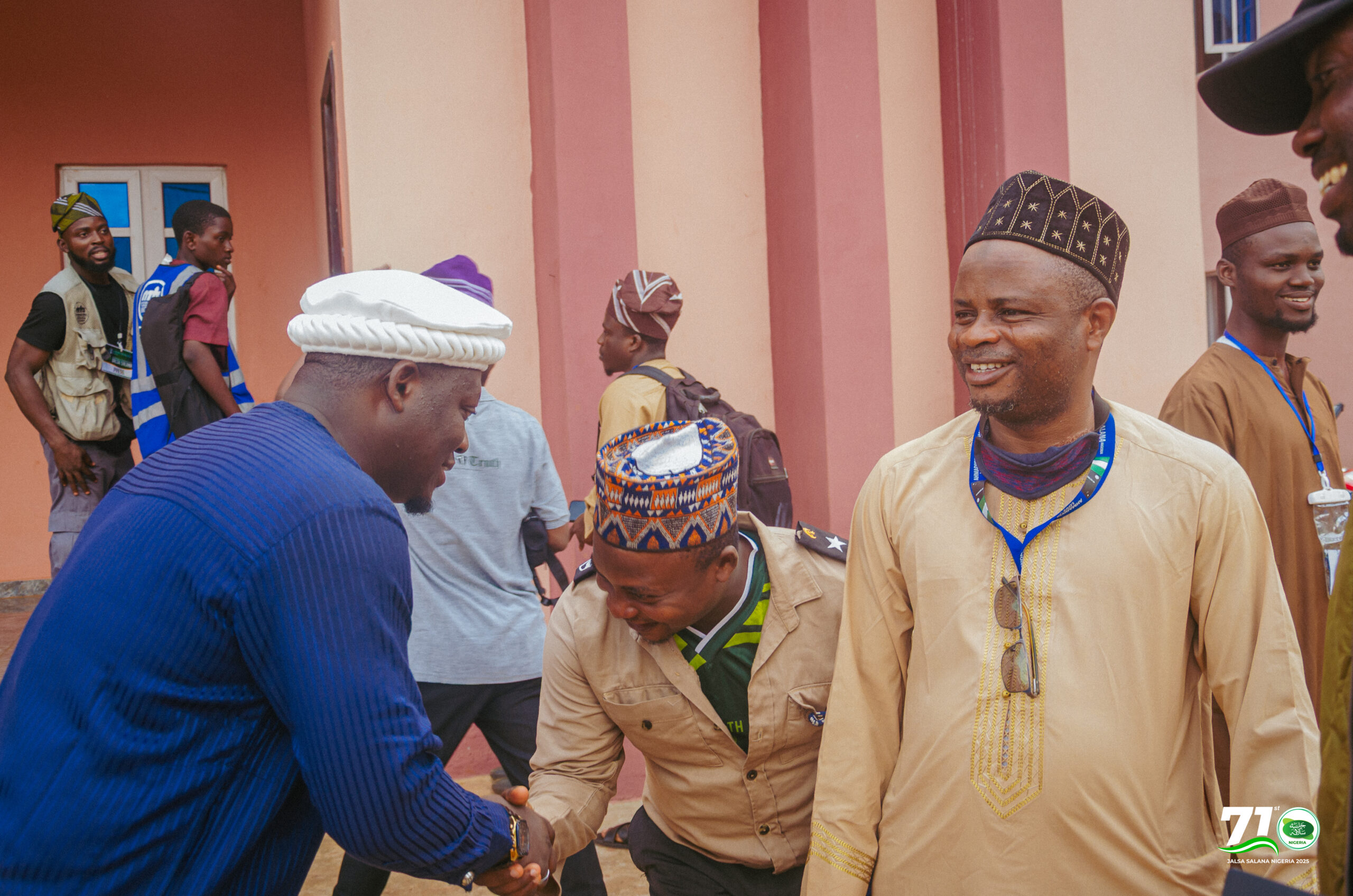By Al-Fawaz Ajimoti
Books have always held a sacred place in Islam, regarded as vessels of knowledge that guide individuals on their intellectual journeys – both secular and spiritual. And why won’t they be? The Holy Prophet (saw) after all regards all forms of beneficial knowledge as a lost treasure of a true believer – which he’s meant to pick up wherever he finds it.
It is based on these teachings of the Holy founder of Islam that the Ahmadiyya Muslim Community has made it a point to provide its members with the necessary literature required for their Intellectual and Spiritual growth at every given opportunity – and most especially, during the Annual conference, or the Jalsa Salana.
As the Jalsa Salana Nigeria 2024 approaches, all departments have gone to work, trying their utmost best to make this year’s Jalsa a memorable one for all the attendees. And for lovers of books or seekers of knowledge, a delightful experience awaits them at the Jalsa Book Stall this year.
Below is a selection of some notable “must-read” books that will be available at the Bookstall, offering rich insights and spiritual nourishment, categorized to help readers explore topics that best resonate with their interests.
Core Islamic Teachings and Philosophy
These books delve into the essence of Islam, offering insights into its principles and spiritual philosophy.
1) The Philosophy of the Teachings of Islam by Hazrat Mirza Ghulam Ahmad, the Promised Messiah and Mahdi(as)
What is the true purpose of life? How can human beings achieve lasting peace and happiness? Is death the end of our lives?
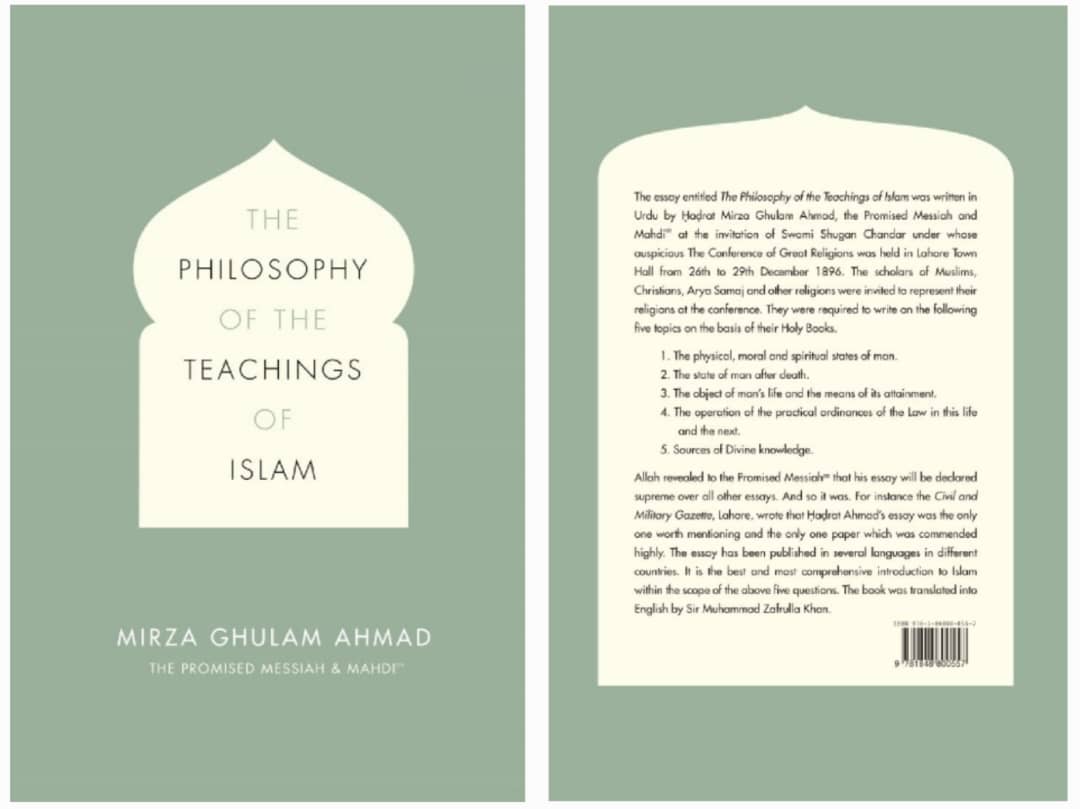
This masterpiece by the Promised Messiah (as) answers these and many more questions. By addressing the physical, moral, and spiritual states of humans, the book offers a profound exploration of human nature, the concept of divine love, and the path to spiritual perfection.
Regarded as one of the most significant and influential works of Islamic literature of this age, The Philosophy of the Teachings of Islam is a must-have, and definitely a must-read book for anyone who seeks to deepen his understanding of Islam in this day and age.
Key Sections to Explore:
The physical, moral and spiritual conditions of man. • The state of man after death. • The object of man’s life on earth and the means for attaining the same. • The effect of action in this life and the next. • The means for the attainment of spiritual knowledge
2) The Economic System of Islam by Hazrat Mirza Bashir-ud-Din Mahmud Ahmad, Khalifatul Masih II(ra)
Can there be an economic system that ensures equity without sacrificing progress?
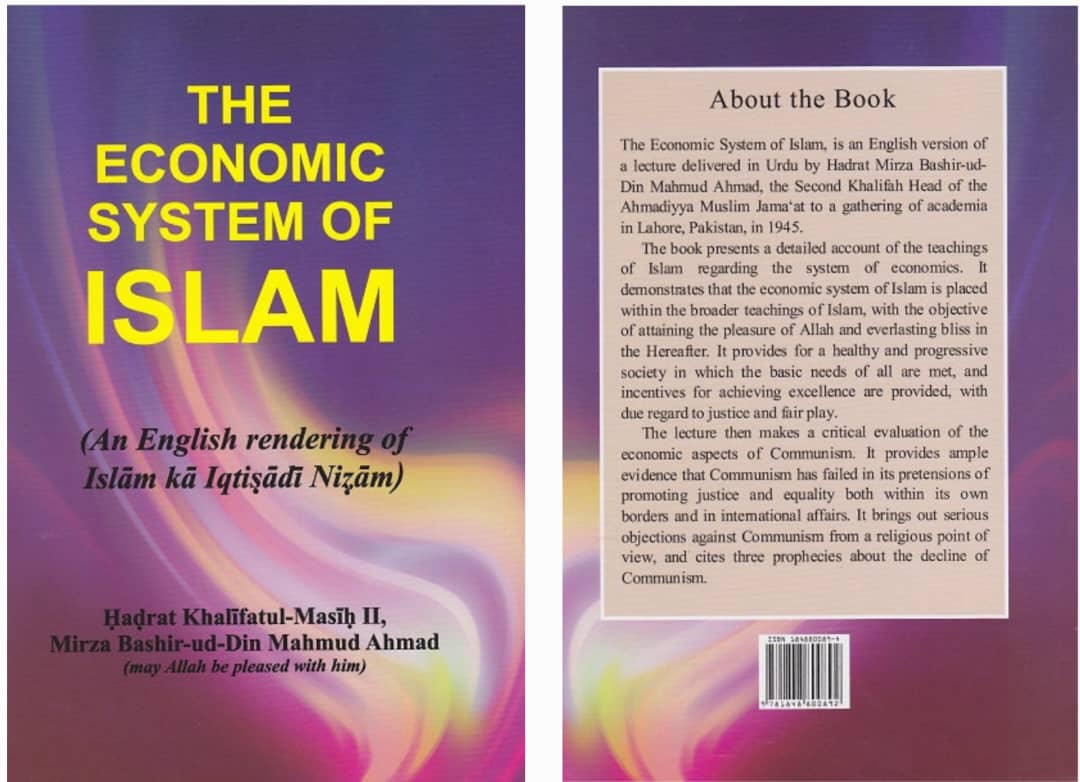
In this masterpiece, Hazrat Khalifatul Masih II(ra) demonstrates with adequate proof that where Communism has failed in its pretensions of promoting justice and equality both within its borders and in international affairs, the economic system taught by Islam not only ensures that the basic needs of all are met but also provides for a healthy and progressive society, which also gives the highest due regards to justice and fair play.
Key Insights:
How does Islam balance wealth creation and wealth distribution? What solutions does Islam offer for poverty and exploitation? What is the future of Communism?
Prophethood and the Promised Messiah
Focused on the role of Prophethood and the claims of the Promised Messiah (as), these books clarify his mission and relevance.
1) Invitation to Ahmadiyyat by Hazrat Mirza Bashir-ud-Din Mahmud Ahmad, Khalifatul Masih II(ra)
Why should one consider Ahmadiyyat as the true revival of Islam? What sets it apart from other interpretations of Islam? What is the Purpose of the Community, and upon which foundation does it stand?
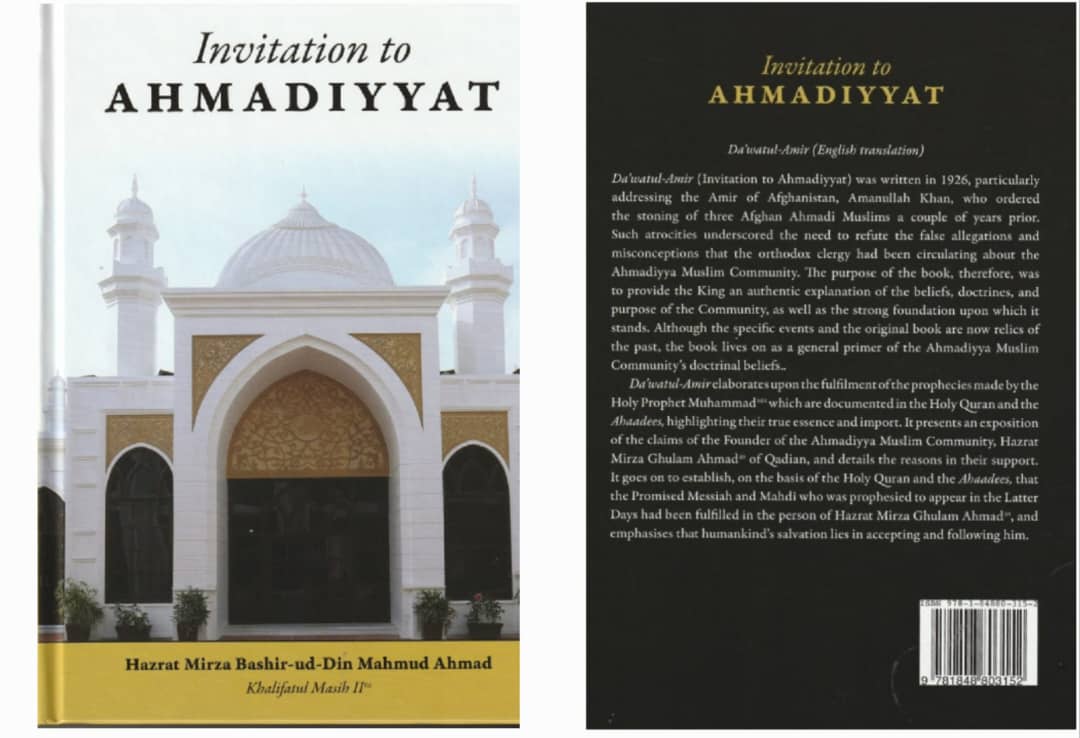
In this compelling work, Hazrat Mirza Bashir-ud-Din Mahmud Ahmad, Khalifatul Masih II(ra) clearly explains the doctrines of the Ahmadiyya Muslim community. Although its primary addressee was the then Amir of Afghanistan, Amanullah Khan, who ordered the execution by stoning of three Afghan Ahmadi Muslims, the book still serves as a guardian for anyone who seeks to know more about the divine claims of the Promised Messiah (as), and the Ahmadiyya beliefs in general.
Key Sections to Consider:
What is the role of the Promised Messiah in Islam? How does Ahmadiyyat unite religion and reason? What are the proofs of the truthfulness of the founder of the Ahmadiyya Muslim Jamaat?
2) The Reality of Khilafat by Hazrat Mirza Ghulam Ahmad, the Promised Messiah and Mahdi (as)
What is the true meaning of Khilafah, and how does it differ from political leadership? Why is a spiritual Caliphate vital for peace and unity in the modern world?
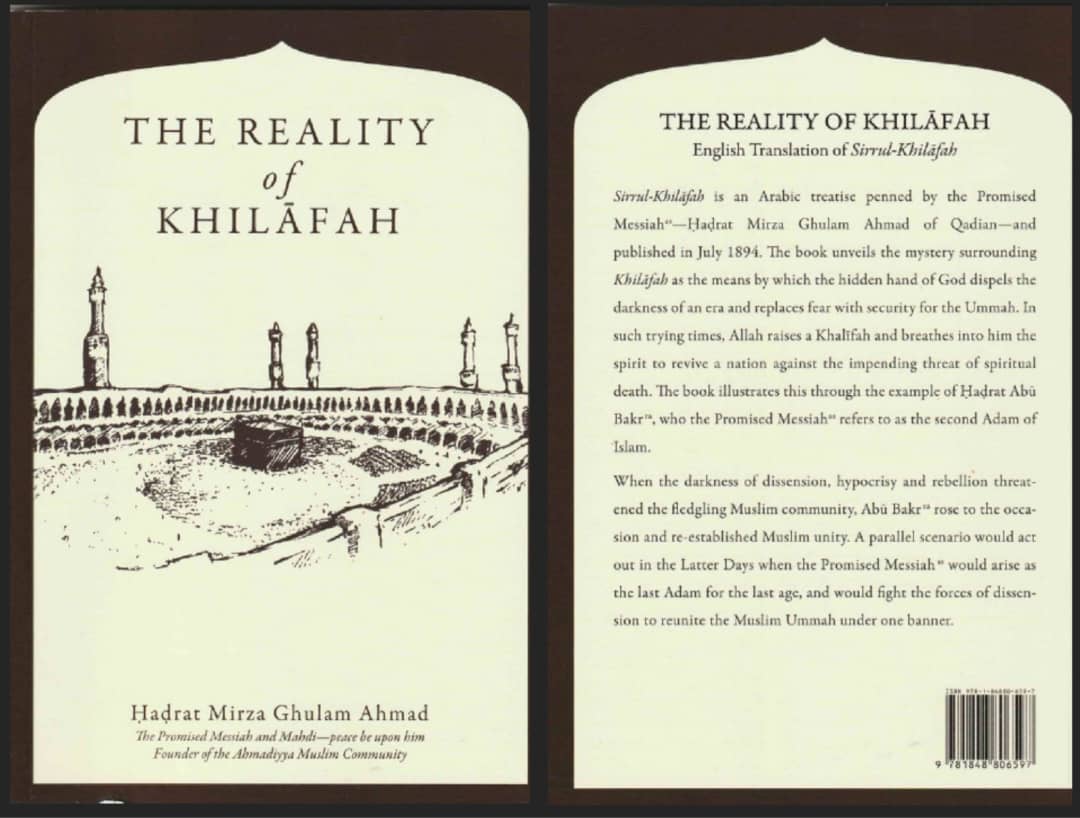
This Arabic treatise by the Promised Messiah (as) delves into and unveils the mystery surrounding Khilafat. Drawing upon the Quranic teaching, it explains how the institution of Khilafat serves as the means by which the hidden hand of God dispels the darkness of an era and replaces fear with security for the Ummah. So it happened during the time of Hazrat Abu Bakr(ra), and so would it happen in the later days as the Promised Messiah(as) would fight the forces of dissension to reunite the Muslim Ummah under one banner.
For those who understand Arabic, you will be amazed by the writing prowess of the Promised Messiah (as) and his command of the language. And for those who do not, a carefully translated version awaits you at the Jalsa Bookstall.
Interfaith Dialogue and Comparative Religion
These books address other religious teachings, highlight how they align or differ from Islamic perspectives and foster understanding and dialogue.
1) Christianity: A Journey from Facts to Fiction by Hazrat Mirza Tahir Ahmad, Khalifatul Masih IV(rh)
How did the teachings of Jesus (as) transform into modern-day Christianity? What is the actual claim of Jesus (as)? What truths have been obscured over time?
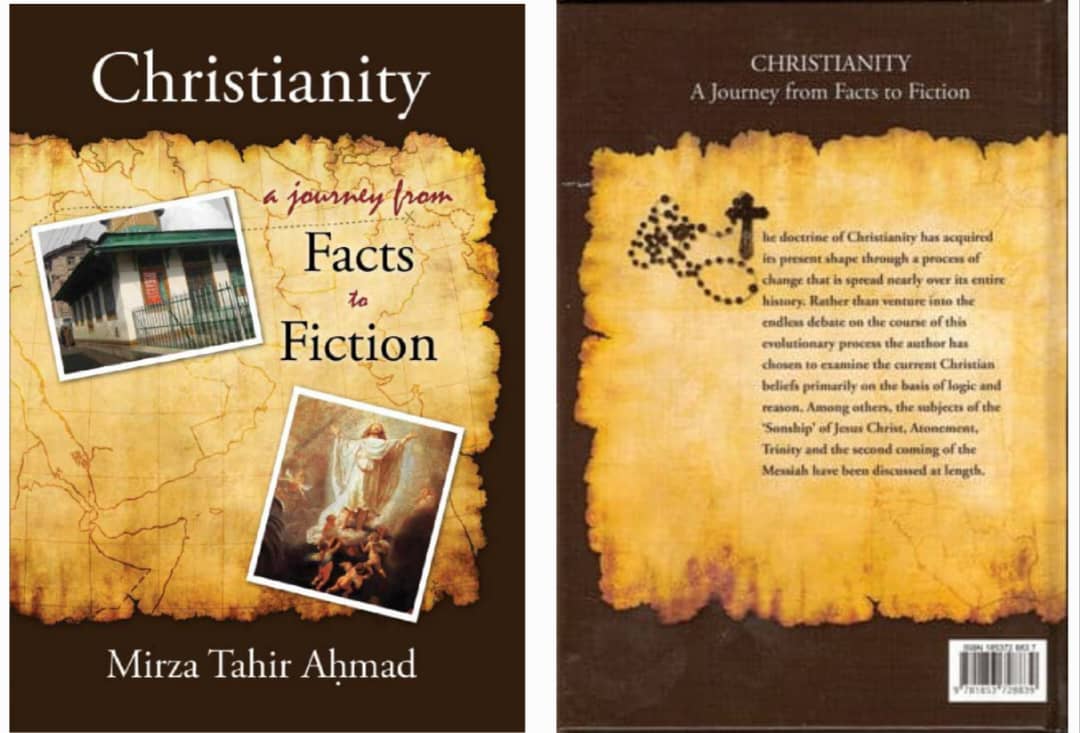
This book critically examines the evolution of Christian doctrine, using historical and scriptural evidence to separate fact from fiction.
Rather than venture into the endless debate on the course of this evolutionary process, the author has chosen to examine the current Christian beliefs primarily based on logic and reason. Among others, the subject of ‘Sonship’ of Jesus Christ, Atonement, Trinity and the second coming of the Messiah have been discussed at length in this book.
Key Insights:
What happened at the Council of Nicaea? How do the Bible and the Quran view Jesus differently? When is Jesus coming back, and what are the proofs of his second coming
2) Murder in the Name of Allah by Hazrat Mirza Tahir Ahmad, Khalifatul Masih IV(rh)
Can religion ever justify violence? Are extremists followers of true religious teachings?
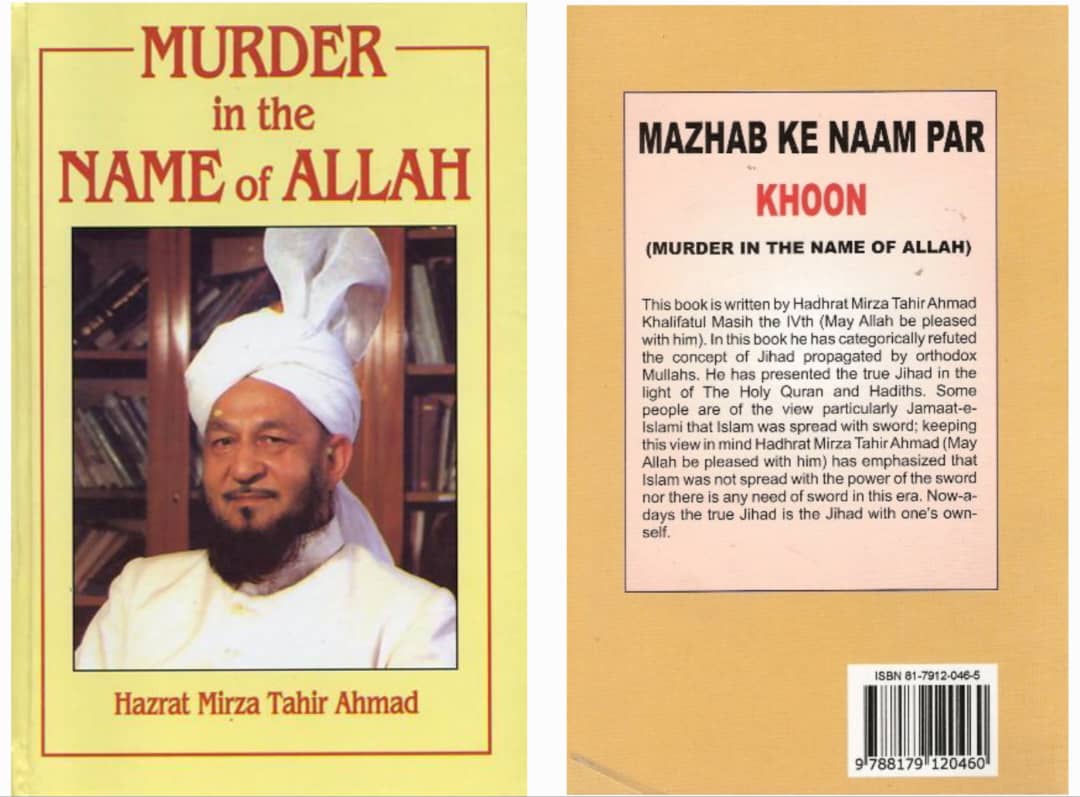
This compelling book boldly confronts one of the most pressing issues of our time: the misuse of religion to justify acts of violence. It challenges the false narratives used by extremists and lays out Islam’s unequivocal stance on peace and justice.
In an age where the true essence of religion (Islam) is being steadily corrupted by minority elements in the community, this book is a reminder that the purpose of any religion is the spread of peace, tolerance and understanding. And also that the future of mankind depends on the intrinsic values of love, tolerance, and freedom of conscience and belief.
Key Insights:
What drives people to commit violence in the name of faith? How does the Quran categorically condemn such actions? Can logical and spiritual reasoning ever support extremism?
Spirituality and Personal Growth
Books that offer practical guidance for individual spiritual growth and a deeper connection with Allah.
1) Blessings of Prayer by Hazrat Mirza Ghulam Ahmad, the Promised Messiah and Mahdi (as)
Do prayers get accepted? Why do some prayers seem unanswered? What does it mean to truly connect with the Divine?
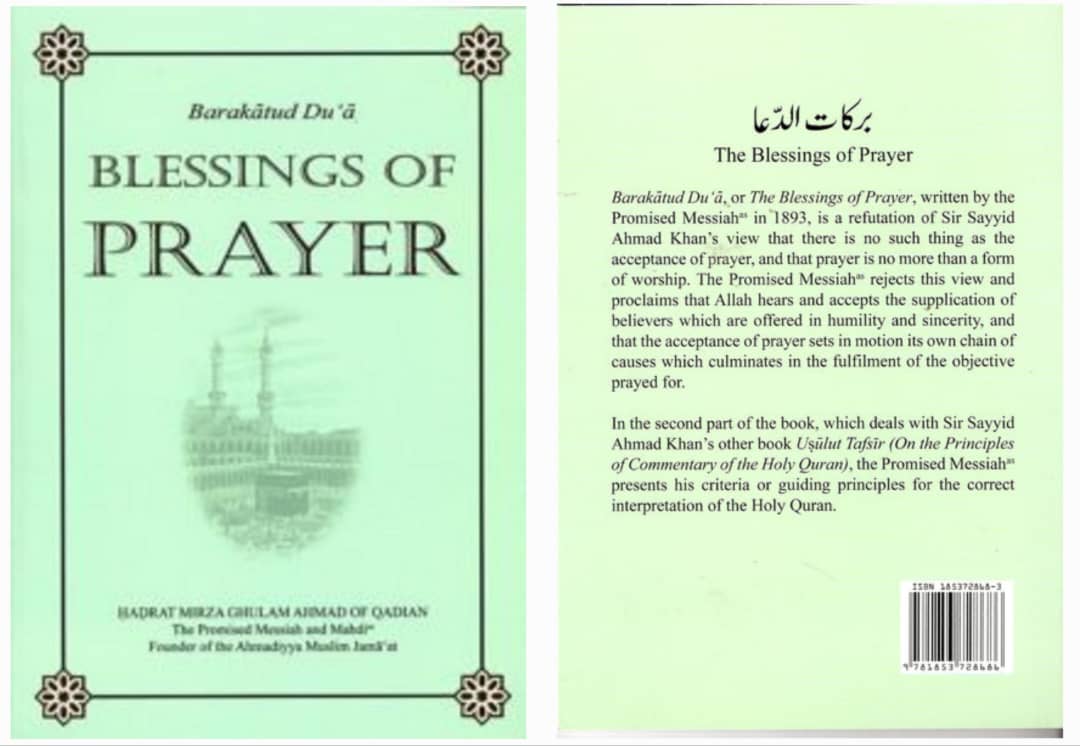
In a fast-paced world filled with distractions, this book offers a gentle reminder of the transformative power of prayer. The Promised Messiah (as) explains how heartfelt supplications can change destinies, elevate the soul, and bring unparalleled peace.
He proclaims that Allah hears and accepts the supplication of believers which are offered in humility and sincerity, and that the acceptance of prayer sets in motion its own chain of causes which culminates in the fulfilment of the objective prayed for.
This short treatise is a spiritual guide for anyone seeking solace and purpose through a deeper connection with Allah.
2) Conditions of Bai’at and Responsibilities of an Ahmadi by Hazrat Mirza Masroor Ahmad, Khalifatul Masih V(aba)
What does it truly mean to pledge allegiance in the name of Allah? What are your responsibilities as an Ahmadi Muslim? Are you living up to those responsibilities?
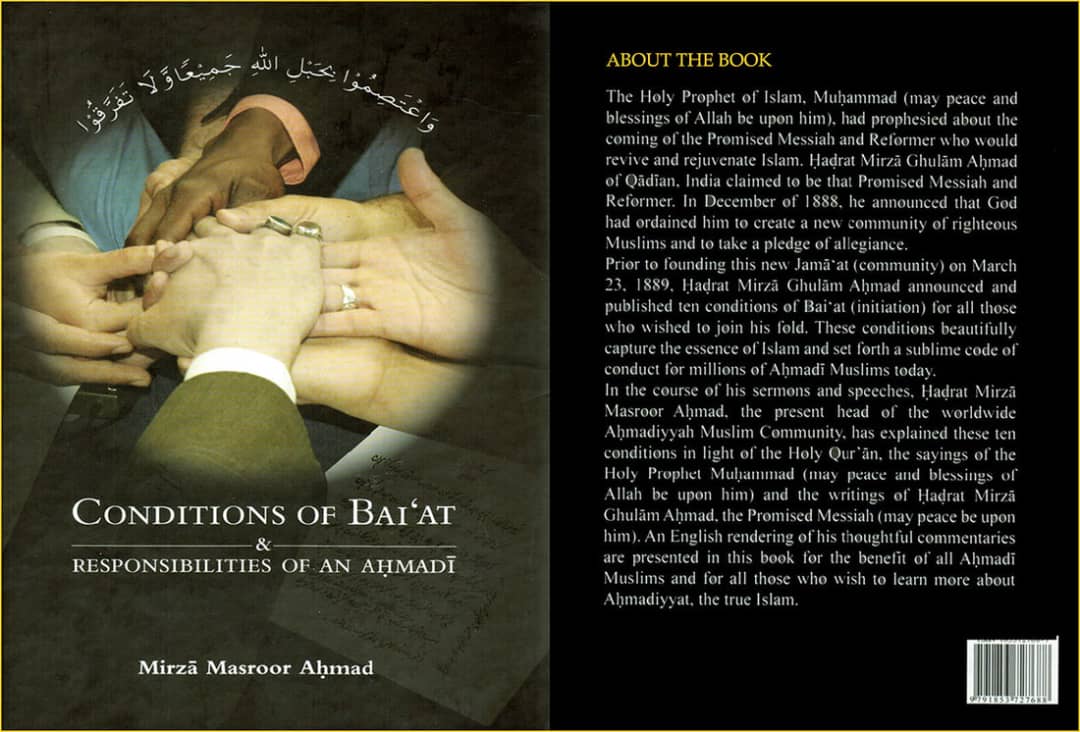
This book provides a practical roadmap for members of the Ahmadiyya Muslim Community to live by the ten conditions of Bai’at as laid down by the Promised Messiah (as).
Hazrat Khalifatul Masih V (aba) has explained these 10 conditions in light of the Holy Quran, sayings of the Holy Prophet(sa) and the writings of the Promised Messiah(as) for the guidance of all Ahmadis and all those who want to learn about Ahmadiyyat the true Islam.
Key Sections:
Self-Reflection: Are you fulfilling the ten conditions? Is taking the Bia’at the end, or the beginning? How can we strengthen our relationship with Allah?
Social Issues and Contemporary Guidance
Books addressing modern challenges and offering Islamic solutions for a balanced life.
1) Social Media by Hazrat Mirza Masroor Ahmad, Khalifatul Masih V(aba)
Is social media a blessing or a curse? How does social media affect our mental health and relationships? How can we harness its potential while avoiding its pitfalls?
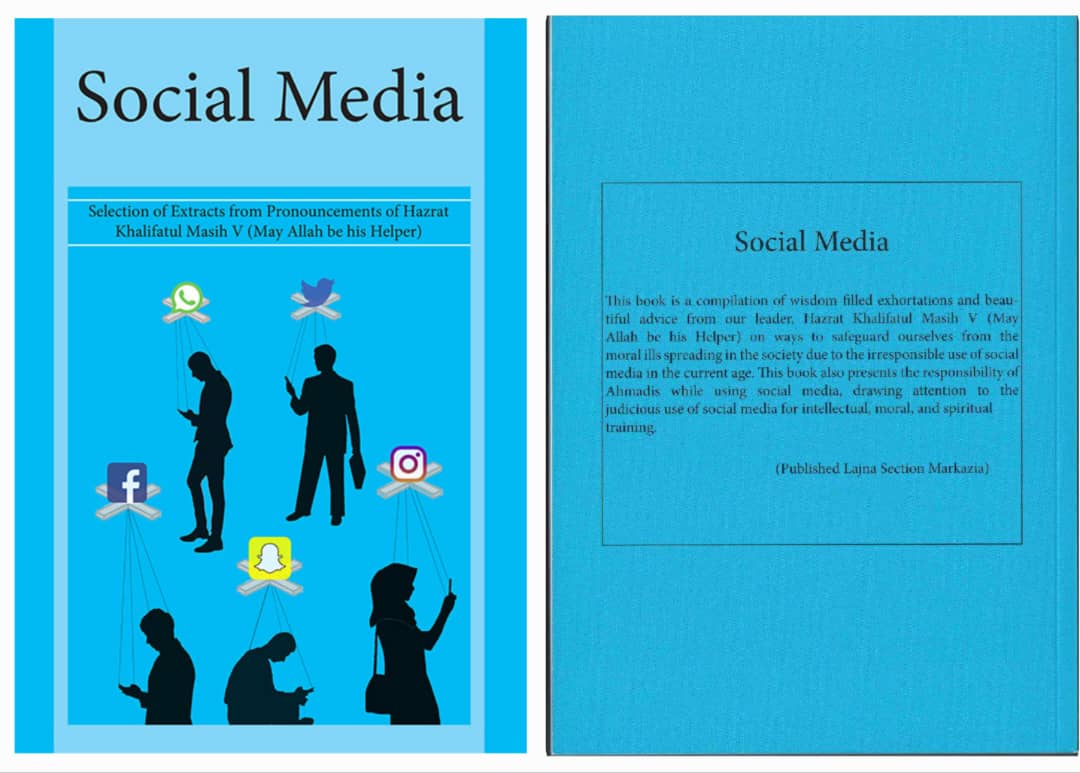
In this timely book, Hazrat Mirza Masroor Ahmad (aba) explores the role of social media in modern life, offering practical, wisdom-filled exhortations and beautiful advices on ways to safeguard ourselves from the moral ills spreading in the society due to the irresponsible use of Social Media in the current age.
Key Insights:
Responsibilities of Ahmadi Social Media users. How to utilise Social Media for intellectual, moral, and spiritual training.
2) Hijab: The Veil by Hazrat Mirza Masroor Ahmad, Khalifatul Masih V(aba)
What does the Hijab represent, and is it a restriction or a liberation?
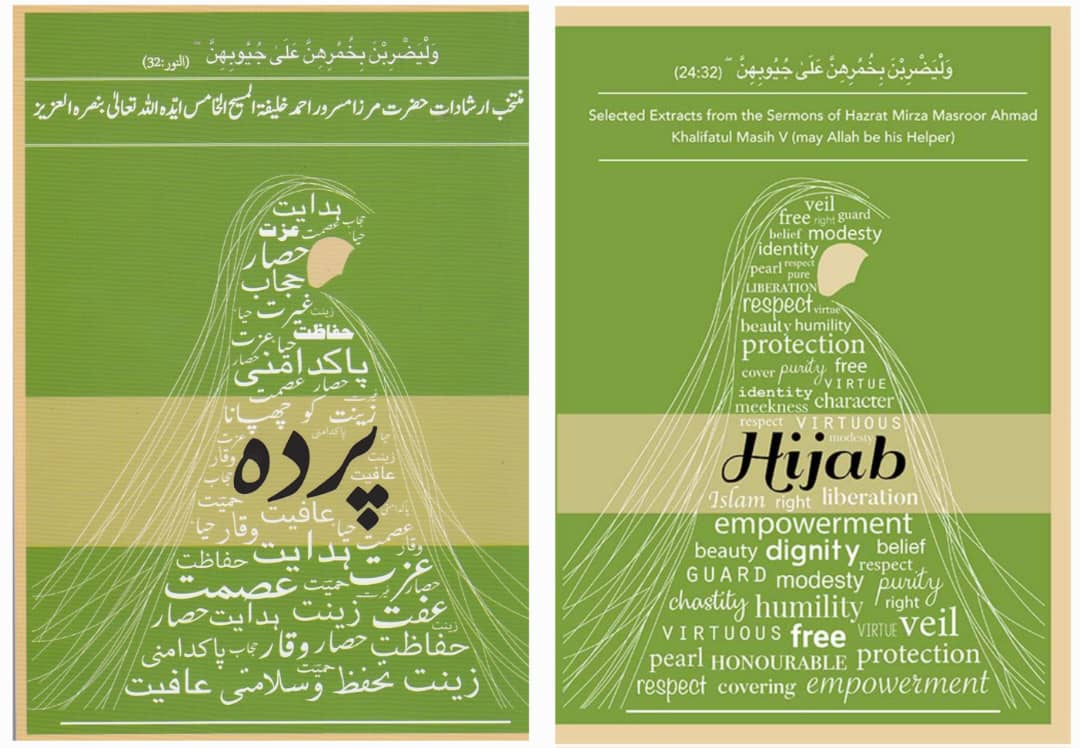
In this thought-provoking book, Huzur (aba) explores the philosophy of the Hijab, addressing misconceptions and presenting it as a symbol of dignity, empowerment, and self-respect.
Whether you’re curious about the practical and spiritual significance of the Hijab or seeking clarity on its role in today’s world, this book offers profound insights that challenge stereotypes and inspire reflection.
Key points:
What does Hijab truly represent in Islam? How does modesty protect and elevate individuals in modern society? Can the Hijab coexist with contemporary values of freedom and equality?
The Jalsa Bookstall at the Jalsa Salana Nigeria 2024 is more than a marketplace—it’s a hub of discovery and enlightenment. Whether you are looking to strengthen your faith, engage in interfaith dialogue, or explore practical guidance for everyday life, these books offer a wealth of knowledge and inspiration.
Join us at the Jalsa exhibition to explore these compelling reads and more. Let the pages turn into stepping stones on your spiritual and intellectual journey, as you connect with the community through shared knowledge and enlightenment. Be sure to visit and explore these valuable resources. Your next favourite book awaits!
Other books to check out:
Section 1
Our Teaching
How to be Free from Sin
A Conclusive Argument in Favour of Islam
Ten Proofs for the Existence of God – Hazrat Mirza Bashiruddin Mahmud Ahmad
Section 2
The Need for the Imam
A Misconception Removed
The Advent of the Promised Messiah
Section 3
Jesus in India
Fountain of Christianity
Islam and the Freedom of Conscience
Section 4
Scattered Pearls
A Hidden Truth
Section 5
Muhammad the Liberator of Women
Garments for Each Other
Selected Excerpts about Marital Harmony – Hazrat Mirza Masroor Ahmad

